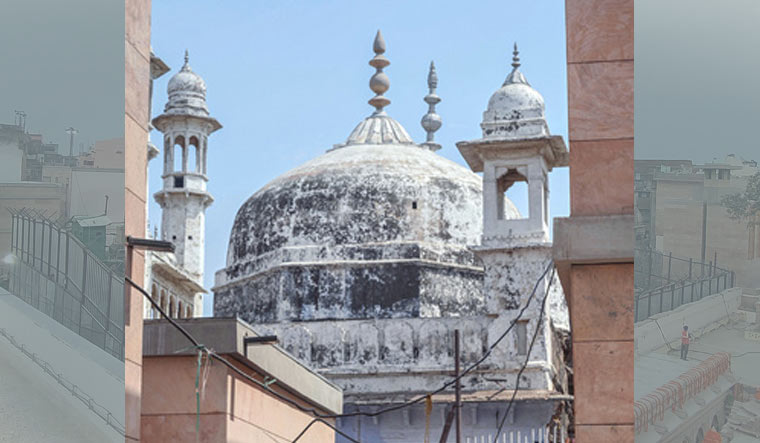Three decades after the P.V. Narasimha Rao government enacted a law to prevent further disputes over religious structures, barring Ram Janmabhoomi-Babri Masjid, the Places of Worship Act under the scanner again. Demands are being raised for its repeal through judiciary or a parliamentary review after a court-appointed survey in Gyanvapi mosque led to discovery of a 'Shivling.'
The Supreme Court, hearing the plea of Committee of Management, Anjuman Intezamia Masjid against order of a Varanasi court to conduct a survey in Gyanvapi mosque, had directed the district magistrate to protect the 'Shivling' but said Muslims should be allowed to hold namaz inside the mosque. The Muslim petitioners are seeking relief that Place of Worship Act, 1991, maintains status quo on religious places as they were on August 15, 1947.
The All India Muslim Personal Law Board set up a committee after the current episode of Gyanvapi to look into the legal issues, particularly the Place of Worship Act. The board also said it can start a nationwide movement for safety of their religious places. It asked the government to make its stance clear on the Place of Worship Act which bars the conversion of the existing religious places.
The law had come handy during the Ram Temple movement as courts relied on it to say it was designed to preserve the secular character as Supreme Court said in its Ayodhya judgement.
The clamour to 'free' Gyanvapi mosque and Krishna Janmabhoomi in Mathura gained traction after the construction of Ram Temple became a reality. Several petitions were pending in Supreme Court, including those filed by BJP leader Subramanian Swamy and party leader Ashwani Upadhaya.
The discovery of a 'Shivling' has led to fervent appeals to restore the temple. However, a lot will depend how the courts interpret the exemptions granted in the law. The Act will not apply to places of worship that are “ancient and historical monuments or archaeological sites or is managed by the Ancient Monuments and Archaeological Sites and Remains Act, 1958.” Exemption also applies if a lawsuit that has been resolved or dismissed or any disagreement between the parties that was resolved by acquiescence before the Act went into effect.
While there have been demands to repeal the law, the BJP government is likely to let the courts decide the course as it did in case of Ram Temple. BJP leaders are of the view that evidence will have to be taken into consideration and can no longer be ignored after a 'Shivling' has been found.
The next step in case, for the Hindu organisations is to get the court to agree to archaeological examination of 'Shivling', which the Masjid says is part of a fountain. Any decision which changes the status quo may ignite a polarising debate over the conversion of Hindu temples to mosques several centuries ago, and lead to demands for similar surveys over other such religious disputes over structures. Its a sensitive matter as it has a potential to influence the polity of the country in the coming years.





